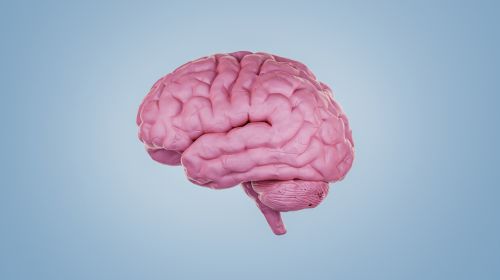In most cases, encephalitis is caused by viruses. What Japanese encephalitis is, what symptoms occur with brain inflammation and how you can prevent infection.
- © iStock.com/courtneyk
Quick overview: Encephalitis (inflammation of the brain)
Definition: Encephalitis is an infection of the brain by pathogens. Japanese encephalitis is important in Asia.
Causes: Mostly caused by viruses. Children, young adults and people with weakened immune systems are increasingly affected. Long-distance travelers also belong to the risk group.
Therapy: If medication is administered in a timely manner, the chances of recovery are good. If left untreated, the likelihood of subsequent damage increases.
Prevent: Vaccinations against measles, mumps, rubella, chickenpox or TBE can prevent the disease. There is also a vaccination against Japanese encephalitis, which is interesting for travelers.
Article contents at a glance:
What is encephalitis?
Brain inflammation is usually caused by an infection with viruses, more rarely by bacteria, protozoa or worms. If the organ tissue of the brain is affected, it is called encephalitis (also encephalitis).
The so-called blood-brain barrier normally prevents pathogens, toxins or other foreign proteins from entering the brain. Sometimes this blood-brain barrier is not sufficient and harmful substances, viruses, bacteria or other pathogens can enter the brain. If they cause inflammation there, the tissue swells and individual nerve cells can die. Large-scale damage to the brain substance can also occur or a cerebral hemorrhage can occur.
Meningitis refers to inflammation of the meninges. If the brain and meninges are affected, it is called meningoencephalitis.
What is Japanese Encephalitis?
Japanese encephalitis is the most important viral infection of the brain in Asia. The main areas affected are China, India, Sri Lanka, Nepal, Vietnam, the Philippines and northern Thailand.
The main hosts of zoonotic diseases (diseases that can be transmitted from vertebrates to humans and vice versa) are pigs and wild birds, and more rarely also horses, reptiles and bats. Japanese encephalitis is transmitted by mosquitoes.
The disease is caused by the Japanese encephalitis virus, which belongs to the group of arboviruses. In most cases the infection is mild or asymptomatic, although one in 250 infected people develop severe encephalitis. Around 30 percent of survivors suffer permanently from paralysis, gait problems, seizures or suffer from mental disabilities or behavioral problems.
Japanese encephalitis: vaccination is the most effective protection
To date, there are no effective medications against this form of the disease. However, vaccination and effective protection against mosquito bites can prevent Japanese encephalitis. Two vaccinations 28 days apart are necessary for immunization. According to the German Society for Tropical Medicine, it is possible from the age of two months. The costs of around 100 euros usually have to be paid by yourself.
The risk of infection for travelers is low and mainly occurs during long-term stays in endemic areas. Above all, there is an increased risk of infection
- in the countryside and at the end of the rainy season,
- all year round in the tropics,
- for children and the elderly as well
- in people with disorders of the blood-cerebrospinal fluid barrier, immunodeficiency, arterial hypertension, diabetes mellitus and chronic kidney disease.
Symptoms of encephalitis
Depending on which region of the brain is affected by the inflammation, the symptoms of encephalitis vary greatly. In the case of autoimmune diseases or chronic viral infections, the signs can begin very gradually and only slowly get worse.
Typical symptoms:
In very severe forms, brain swelling occurs, which can trigger a continuous seizure (status epilepticus) or a coma. These symptoms indicate a poor prognosis. Acute severe encephalitis is always life-threatening and must be treated immediately.
Detecting encephalitis in infants and young children is difficult. The following complaints should definitely be clarified by a doctor:
- body stiffness
- Increased crying, the children cannot be calmed down and gets worse when they are picked up
- Refusal to eat
- Vomit
- Fontanelle bulging outwards
Causes of encephalitis
Encephalitis is only contagious in the rarest of cases. Immunocompromised people can also become infected directly from sick people.
Brain inflammation can be caused by viruses, which only become a danger when the immune system is weakened. In Germany, the most common viral causes of encephalitis are:
Herpes simplex virus
Varicella zoster virus (chickenpox virus)
Epstein-Barr virus
Cytomegaly
Measles virus
Mumps virus
Rubella virus
Enterovirus
TBE virus (tick-borne encephalitis)
There are also other viruses that come into question: Lyssavirus (rabies), West Nile virus, arboviruses (Japanese encephalitis), Coxackie virus (hand-foot-mouth disease), poliovirus (polio), echovirus or Nipah virus .
Bacteria and parasites
Bacteria can also cause brain inflammation. Typical examples are Borrelia, which is often transmitted by ticks. Bacteria that cause tuberculosis and syphilis as well as streptococci can also penetrate the brain and cause bacterial inflammation.
Parasites such as roundworms, toxoplasmosis pathogens or fungi can cross the blood-brain barrier in immunocompromised people. People with AIDS, serious chronic illnesses, cancer or those who have had an organ transplant are particularly at risk.
Autoimmune reactions
Autoimmune reactions can also lead to brain inflammation. In this case, the human immune system attacks its own organ. The underlying mechanisms have not yet been sufficiently researched; possible triggers could be infections, incorrect activation of the immune system or tumor diseases. Multiple sclerosis is also associated with such autoimmune diseases.
How is the diagnosis made?
If there is suspicion of brain inflammation, numerous tests are carried out. These are:
anamnese (Medical history survey): Information about general health, viral infections, tick or other insect bites, recent travel, contact with farm animals or people with encephalitis. In addition to the patients, relatives are also interviewed if possible.
Physical and neurological examination: Clouding of consciousness, difficulty walking, signs of paralysis, speech difficulties or abnormal sensations can indicate encephalitis.
Blood test: They can be used to detect signs of inflammation and possibly identify a pathogen.
Cerebrospinal fluid examination: The lumbar puncture is used to detect pathogens and signs of inflammation in the cerebrospinal fluid.
Magnetic resonance imaging (MRI): An MRI of the skull with or without contrast can image changes in normal brain structure.
Computed tomography of the skull (CT): Rule out acute brain swelling.
Derivation of brain waves (EEG): Changes in brain waves may indicate increased susceptibility to seizures or other changes in the brain’s electrical energy
A brain biopsy is only performed if a diagnosis cannot be made otherwise.
Treatment of encephalitis
If brain inflammation has been diagnosed, treatment must be carried out in hospital. This is the only way to quickly identify potentially life-threatening complications. Symptomatic therapy (focused on the symptoms that occur) includes:
- bed rest
- reduce fever
- Replenish loss of fluids and electrolytes
- Painkiller
- If necessary, administration of antiepileptic drugs and sedatives
- Breath control
Until encephalitis caused by herpes viruses has been ruled out, doctors immediately prescribe the antiviral drug acyclovir intravenously every eight hours. This therapy is continued until the viruses can be ruled out as a trigger. If bacterial inflammation is suspected, additional antibiotics are administered.
If the pathogen causing encephalitis has been clearly identified, specifically effective agents are used. Depending on the type of parasite, anthelmintics (worm medications) or antimycotics (fungals) can be used. If the encephalitis is caused by an autoimmune reaction, cortisone is the drug of choice.
Therapy can be supported by dialysis and treatment with antibodies (immunoglobulins).
What are the chances of recovery from encephalitis?
In the case of encephalitis, the chances of recovery depend on the severity of the disease, the type of trigger and the time of diagnosis and start of treatment. If encephalitis is recognized quickly and treatment is started promptly, the prospects for complete recovery are usually good.
Under certain circumstances, brain inflammation can cause serious, permanent damage or be fatal. In particular, persistent seizures (status epilepticus) and brain swelling (cerebral edema) can be life-threatening complications.
For some of those affected, chronic symptoms persist for a long time. Typical sequelae of encephalitis include detecting and treating hearing loss in children and poor eyesight, concentration and memory problems, language difficulties as well as balance problems and unsteady gait.
Prevent illness
As a preventative measure, you can get vaccinated against many pathogens. Vaccinations against
- Measles,
- Mumps,
- Rubella,
- Chickenpox,
- Poliomyelitis,
- flu and
- TBE is offered nationwide.
Long-distance travelers should get vaccinated against the Japanese form if they plan a trip to South, Southeast and East Asia.
You should also check yourself regularly for ticks after spending time in the forest or meadows. Early, professional removal of ticks significantly reduces the risk of infection.




